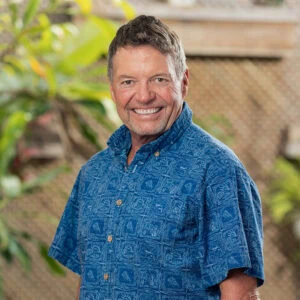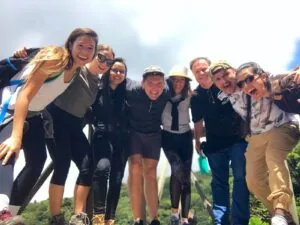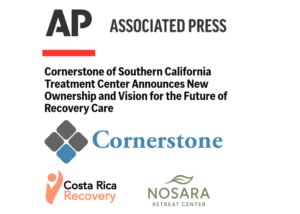Staying sober “one day at a time” is the goal for people in early recovery, yet it can feel challenging, especially when emotions trigger you. Emotional triggers are things that bring up strong feelings that you would have typically used substances to cope with. When these emotions come up while you’re sober, they can cause cravings to relapse. However, while they can feel intense in the moment, they often pass in a few minutes.
Recognizing and managing emotional triggers is a foundational skill in creating long-term, holistic recovery.
Understanding Emotional Triggers
Emotional triggers are situations, people, or events that can cause intense emotional reactions. Arguing with your spouse or feeling disappointed with the outcome of a job interview are examples of strong emotional triggers. Feelings like anger, sadness, anxiety, or excitement can all be an impetus for relapse if you don’t know how to cope with them.
Emotional triggers are a normal part of life, and they don’t have to control you. By learning to identify and manage triggers, you can stay strong in your sobriety and build a healthier, happier life.
Building a Strong Support System
Having people in your life who support your sobriety can make a big difference. Surround yourself with friends, family, or support groups who understand that you are in recovery and that you might need support as a result of stressors and emotional challenges that you experience. Support networks, like those nurtured at Costa Rica Recovery, offer grounding, empathy, and strength during emotional storms.
Identifying Emotional Triggers to Protect Your Serenity and Recovery
As a newly sober person, experiencing emotions without self-medicating may be overwhelming. The intensity of your emotions may make it harder to cope with everyday stress if you don’t learn how to handle these triggers. For some people, they can even lead to a relapse.
That’s why it’s so important to recognize what sets off your emotions, understand your thinking, and have a plan to deal with them. Many treatment centers will help you learn about your triggers and make dealing with them a part of your relapse prevention plan.
It may be helpful to keep a journal or use an app to note when triggers occur. If stress at work makes you crave substances, write down the specific situations and emotions leading up to it to discuss with your therapist or support group.
Respond to Triggers with Mindfulness
At Costa Rica Recovery, immersive mindfulness training empowers participants to navigate emotions with calm and confidence. Leading them to feel more in control and live a more serene life. Mindfulness training helps you to notice your mood, physical sensations, and thoughts. You can acknowledge the feelings instead of automatically seeking relief. “This, too, shall pass,” is a popular phrase in early recovery
Here is more detail about mindfulness-related activities that may help in early recovery:
- Use Grounding Techniques: Try sensory exercises to stay present and avoid emotional spirals. For example, quietly relax your body and tap the center of your forehead as you breathe in and out slowly.
- Reframe Negative Thoughts: Challenge distorted thinking and replace it with more balanced perspectives. Instead of thinking, “I’m such a failure for relapsing,” reframe it as, “This is a setback, but I can learn from it and move forward.”
- Engage in Physical Activity: Research show that exercise can reduce stress and improve your moods, helping you handle anxiety and battle depression. When feeling triggered, take a brisk walk. You can also try bicycling, aerobics, or yoga.
- Practice Self-Compassion: Don’t beat yourself up when you make a mistake! Be gentle, and try to focus on progress rather than perfection. If you experience a setback, remind yourself that healing is a process and that every day is a new opportunity.
- Use Distraction Techniques: These techniques help you direct attention elsewhere when cravings or emotional distress arise. For example, put some music on a speaker, engage in an activity like painting, or play a video game.
Cravings and triggers can be distressing, but they don’t last. Learning to manage them helps strengthen your recovery so you can focus on the positive.
Costa Rica Recovery provides a safe and supportive environment to work through emotional triggers without the risk of relapse.
It’s a chance to practice new coping tools with guidance from the clinical team. Experiencing that you can face emotional challenges without turning to substances is a powerful confidence builder – and an important step toward lasting empowerment and freedom.
Taking care of yourself is one of the best ways to handle emotional triggers. When you’re well-rested, eating healthy, and staying active, you’re best equipped to cope with stress. Make self-care a priority in your daily routine.
Costa Rica is a Great Destination for Alcohol & Drug Treatment
Costa Rica, with its proximity to the U.S., Canada, Mexico, and its reputation for wellness, is an ideal location for drug treatment. The “Pura vida” culture is warm to newcomers, the abundant nature and wildlife create a peaceful environment conducive to healing. Costa Rica’s emphasis on mindfulness, simplicity, and connection to nature aligns perfectly with the principles of holistic recovery.
Costa Rica Recovery has become known for offering world-class addiction treatment at an affordable cost with a renowned locale, comfortable accommodations, and expert care.
If you’d like to speak with a team member immediately, you can reach us via phone or email. We’re ready to assist you.
- Call Us Toll-Free: +1 (866) 804-1793
- Call Us (Costa Rica): +506 8348-6369
- Email Us: info@costaricarecovery.com











